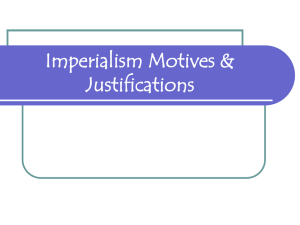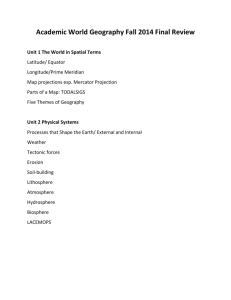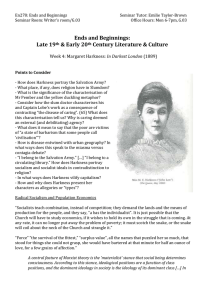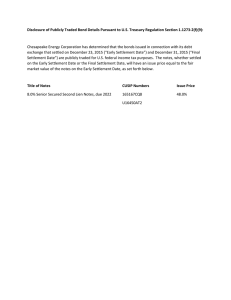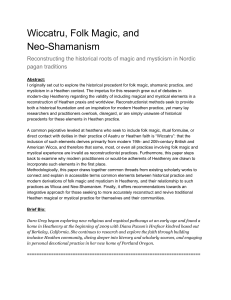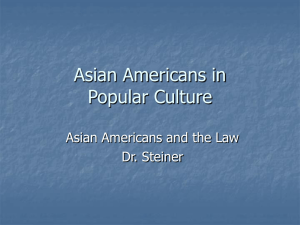IN DARKEST LONDON Margaret Harkness (1889)
advertisement
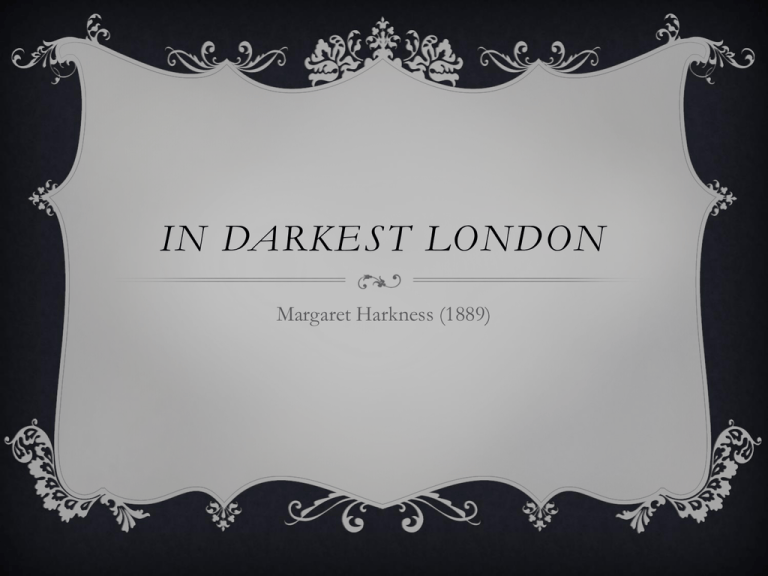
IN DARKEST LONDON Margaret Harkness (1889) MARGARET HARKNESS Born 28 February 1854 Carried out first hand research in the East End in preparation for her career as a journalist reporting on the conditions of the poor Published five novels under the pseudonym “John Law”, In Darkest London was the third (originally Captain Lobe: A Story of the Salvation Army) Identified as a socialist; novel reflects Engels advice about her first novel A City Girl (1887) that a good realist novel should demonstrate ‘the truthful reproduction of typical characters under typical circumstances’ THE SALVATION ARMY Founded by William Booth and his wife Catherine in 1865. SETTLEMENT MOVEMENT Settlement Houses e.g. Oxford House (Bethnal Green) Toynbee Hall (Whitechapel) Sent university students to live among the poor “A settlement is simply a means by which men or women may share themselves with their neighbours ; a club-house in an individual district, where the condition of membership is the performance of a citizen’s duty; a house among the poor, where the residents may make friends with the poor.” --- Samuel Barnett, University and Social Settlements, 1898. H OW D O E S H A R K N E S S P O R T R AY AT T E M P T S T O B R I D G E T H E G A P ? “Christians have grown callous. Just look what London is at present. It is divided into two nations, East and West; one nation is starving, the other nation is rolling in luxury.” (56) - Consider her characterization of Captain Lobe; her treatment of religion and its oppositions (socialism, intelligence); her portrayal of St Judes, of the Salvation army, the hypocrisy of Clergymen. IN DARKEST AFRICA (1890) London’s East End as Othered space Becomes synonymous with African wilderness, invoking an imperial relationship, which makes the slums both British and Non-British Immigration, overcrowding, crime, poverty “the stony streets of London if they could speak, would tell of tragedies as awful, of ruin as complete, of ravishments as horrible, as if we were in Central Africa; only the ghastly devastation is covered, corpse-like, with the artificialities and hypocrisies of modern civilisation” (13) C O N S I D E R S E T H K O VA N ’ S C O N T E N T I O N T H A T T H E JEWISH QUESTION AND THE SOCIAL QUESTION H AV E A R E C I P R O C A L I M P A C T O N R E P R E S E N TAT I O N S O F L O N D O N. “Among the foreigners lounges the East End loafer, monarch of all he surveys, lord of the premises. It is amusing to see his British air of superiority […] He is looked upon as the scum of his own nation, but he feel himself to be an Englishman, and able to kick the foreigner back to “his own dear native land” if only the Government would believe in “England for the English” and give all foreigners “notice” (12-13) “The labour-mistress pressed her thumb against her finger, and seemed to see the girl babies vanishing by a heathen Chinee process, which we are taught to think barbaric. But who can say if the heathen behave so very badly? Day by day girls starve in the London streets, and live lives worse than death, while money is sent to teach the heathen not to murder their innocents” (82) A N I M A L I M AG E RY A N D T H E L OW E R CLASSES “…with the curses of men lower than the beasts, but for the gift of speech” (22) “They reached a large human bee-hive, where five or six hundred people have cells to live in […] they stopped to enter a place about which buzzed an angry crowd of human insects” (61) “…where she might graze amongst a herd of like-minded ladies (89) “…for all social and political purposes they are like a herd of sheep; only, of course, they are of less value than sheep in the money market.” (154)
